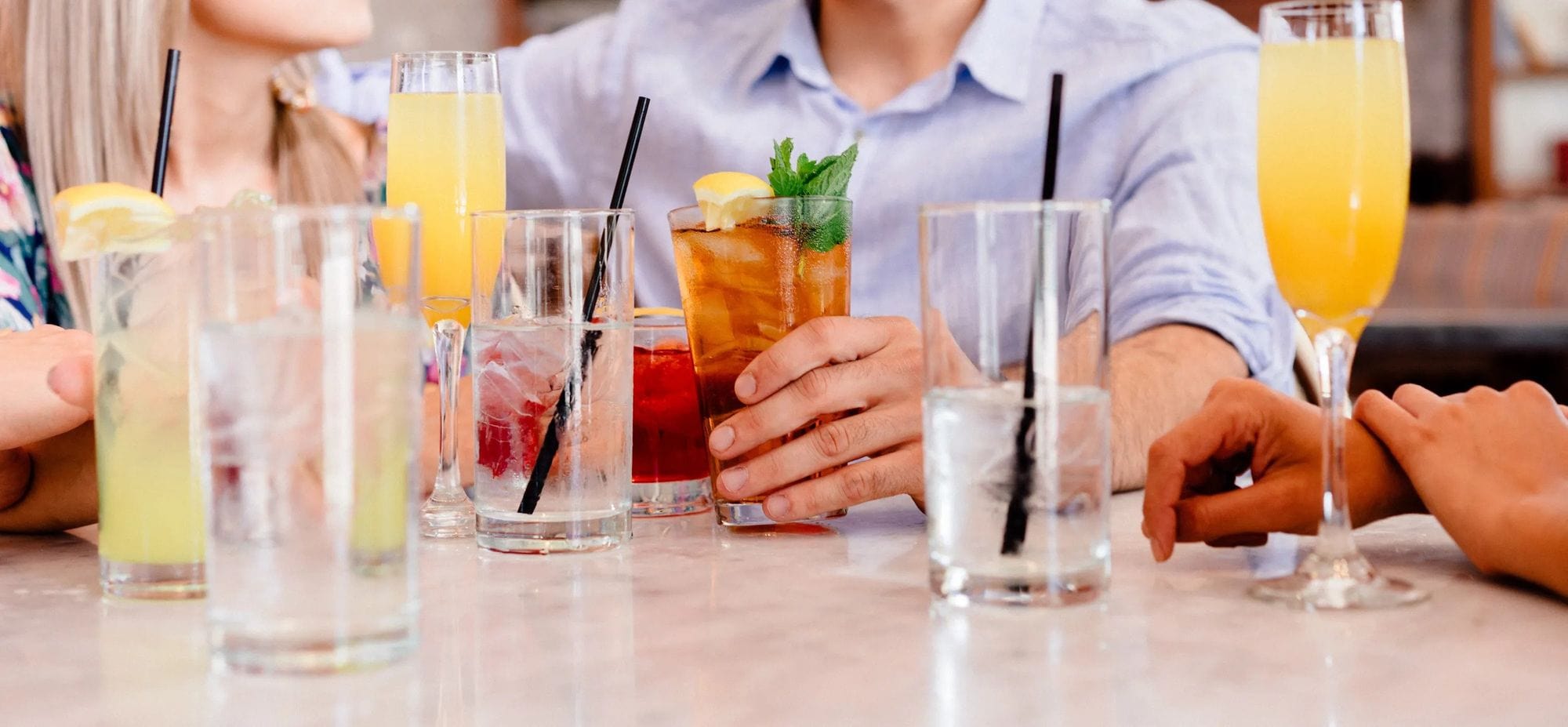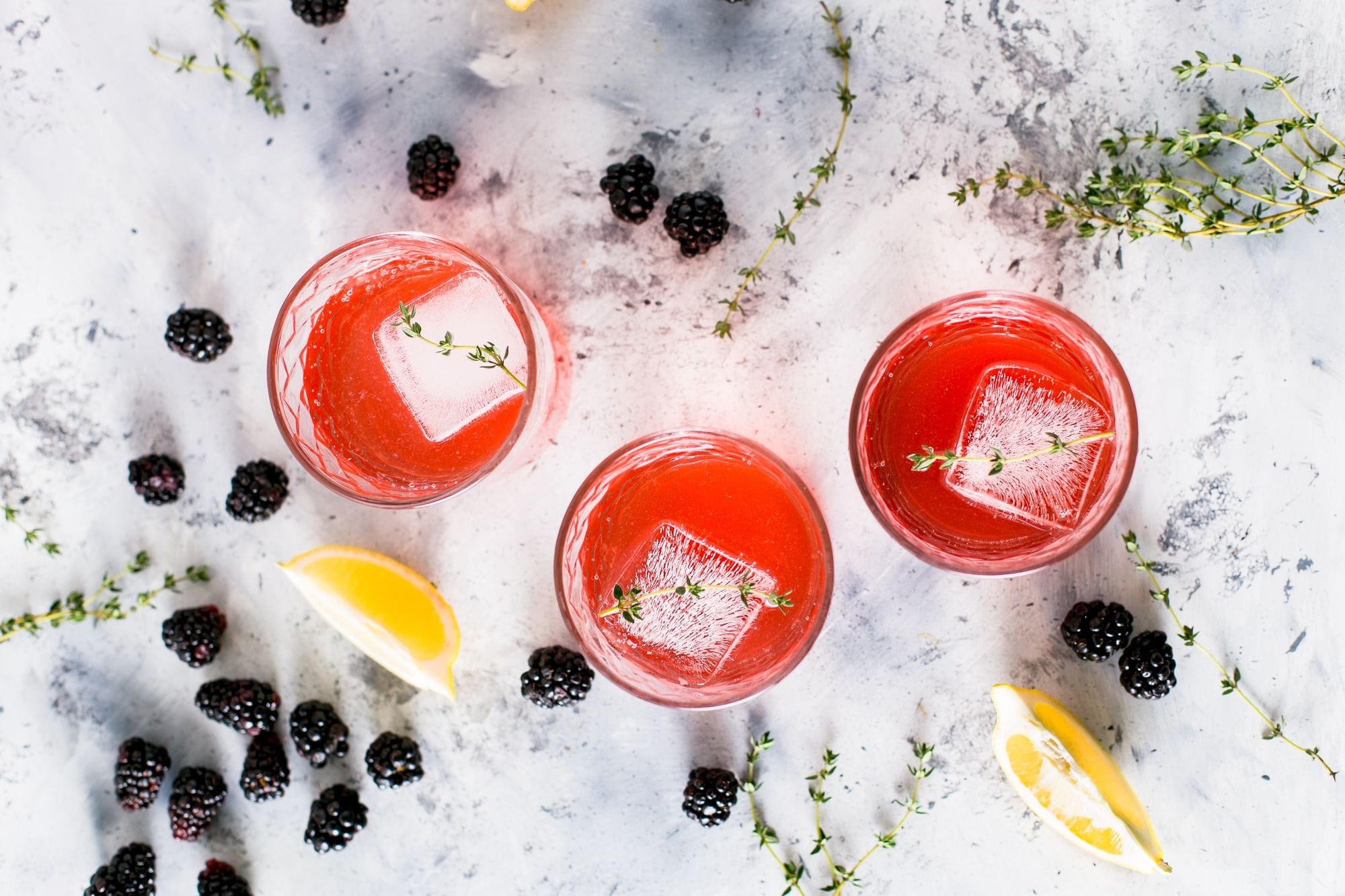Whether we’re out for a few drinks with friends or enjoying a glass of wine with dinner, it can be easy to let the health effects of alcohol slip our minds.
We know that heavy drinking isn’t good for us – but what’s the relationship between alcohol and blood sugar?
When you eat or drink, carbohydrates break down into glucose molecules in our blood.
Insulin, a hormone secreted by the pancreas, moves the glucose from our blood into our cells, which supply energy into our body.
But alcohol can disrupt this process in a number of ways – both in long-term and short-term risk.
Risk #1: Insulin Issues
According to Medical News Today[1], excessive long-term alcohol consumption can reduce the effectiveness of insulin. If insulin can’t move glucose into cells, our blood sugar levels become higher than normal.
Consistently high blood sugar can lead to the development of insulin resistance, and increases our risk of type 2 diabetes and other chronic diseases.
Risk #2: Low Blood Sugar
A short-term risk of heavy drinking is dangerously low blood sugar, known as hypoglycemia.[2] This issue is most common in people with diabetes, especially insulin dependents.
Normally, our liver helps keep our glucose levels steady and acts as a reservoir for when our blood sugar gets too low.
When we drink, the liver focuses on clearing the alcohol out of our body instead of regulating our glucose – which can cause our blood sugar levels to drop to dangerous levels.
Symptoms of hypoglycemia include confusion, sleepiness, blurry vision, and headaches.[3] You could also experience lightheadedness and dizziness.
People often confuse these symptoms with being drunk, so it is important to slow down, drink in moderation, and pay attention to how your body responds to the alcohol as the night goes on.
Watch your symptoms, keep your portions moderate, and seek medical attention if you notice anything unusual.
Drinking on an empty stomach can increase your risk of hypoglycemia, so eat a healthy meal beforehand and stay hydrated with water.[4]

Risk #3: Glucose Spikes and Weight Gain
Another short-term risk of drinking is a spike in your blood sugar. Typically, alcoholic drinks higher in carbs and added sugar tend to lead to a higher spike than others.
But everyone’s blood sugar responses are unique, and you might see different results than you expect.
Your glucose might spike severely after a mojito, while a glass of merlot might not affect your blood sugar very much at all.
If you go out for a beer with your coworkers after work, each one of you can have a completely different response to the same drink.
Plus, excessive alcohol consumption can lead to weight gain in the long-term. Drinks higher in simple carbs and added sugar add empty calories and zero nutrients to our diet.
One shot of whiskey has about 97 calories,[5] but an 8oz piña colada can have 437 calories![6]
The best way to avoid drinks that can raise your blood sugar is to test your response to different beverages using a glucometer.
If you’re not able to test your glucose, you can still adjust your drinking to avoid spikes.[7]
Avoid drinks heavy in carbohydrates, like sweet wines, cordials, and beer. Choose light beer, dry wines, and neat liquor.
Stay away from mixers high in added sugar, like soda or fruit juice. Instead, flavor your drinks with water, club soda, and fresh fruit.
- Watch your portions and drink in moderation. Stick to one drink per day if you’re a woman, and two drinks per day if you’re a man.

What Else Can You Do to Manage Blood Sugar?
Alcohol can have a significant effect on our blood sugar if we’re not careful!
If you’re concerned about type 2 diabetes, high blood pressure, and other health complications, such as stroke, it’s best to limit the foods (and drinks!) that can raise your blood sugar.
Building a healthy lifestyle through weight management, a healthy diet, and regular exercise can reduce your risk of type 2 diabetes and other health risks that come with high blood sugar.
Drink responsibly!





